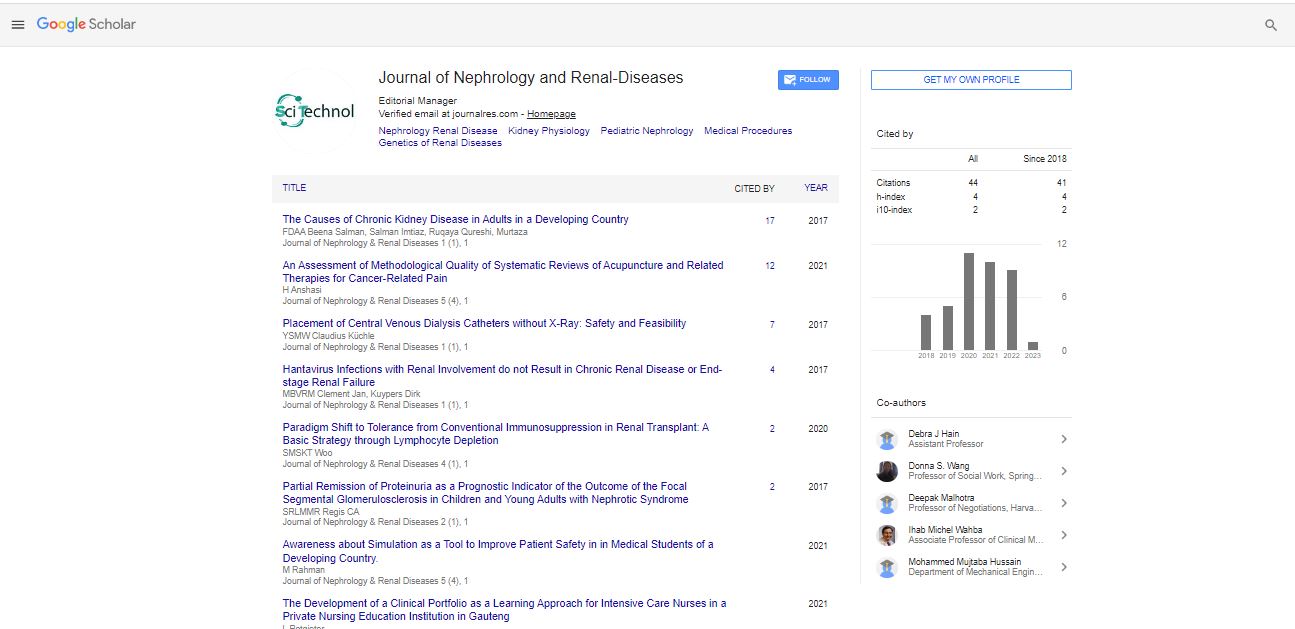Geographical distribution of urinary tract malignancies in Jablanica District– Southern Serbia– Possible link to renal diseases and Balkan Endemic Nephropathy
Nikola M Pavlovic
Serbian Medical Society, Serbia
: J Nephrol Ren Dis
Abstract
Urinary tract cancers are common and comprise a wide range of lesions ranging in terms of size and malignancy from small benign tumors to aggressive neoplasms with high mortality. The predominant urinary tract malignancy is urinary bladder cancer. The exact etiopathogenetic mechanisms are not established yet, but there is most likely an interplay between environmental and genetic factors. Tobacco, obesity, occupational exposures ageing, and lifestyle factors remain the top contributing etiologic factors. In order get an insight into the type of cancer, incidence, gender ratio and geographical distribution we performed the descriptive epidemiology of several urinary tract cancers, utilizing incidence data from Pathology Unit Registry, General Hospital Leskovac, Jablanica county, Southern Serbia, 2007-2017. Over the period 2007-2017, there were 530 cases, 136 females and 394 males with the ratio 1:3. The overall incidences of all tumors increased in both sexes. There was a tendency for an exponential increase, but more so for males. (Fig.1). The urological cancers were recorded in 149 out of 193 settlements ranging from 1 to 174 cases. Remarkably, no cases were found in 44 settlements. We assume that differences in population-level exposure to environmental modifiable risk factors are a key driver of recorded cancer incidence. Several studies have demonstrated the carcinogenic potential of aristolochic acids (AAs) contained in Aristolochia plants. The AAs– derivative d-aristolactams are associated with a specific mutation in the p53 encountered in patients with Chinese herbs or Balkan endemic nephropathy (BEN) who present with UTUC. Although the incidence of BEN and UTUC has not been elucidated yet there is possible link between the two.
Biography
Nikola M. Pavlovic has graduated at the Medical Faculty, University Nis, Serbia in 1974, and become BMedSci 1979, Lecturer in Internal Medicine 1979, Specialist in Internal Medicine 1982, PhD of Medical Sciences 1986, and Associate Professor in Internal Medicine1988, British Council Scholar, Research Fellow, October 1982 – June 1984 at the Department of Renal and Nephrology Services, Royal Free Hospital, London, UK. As the Research Fellow, he was doing clinical and experimental work aimed at looking at the role of lipids in the initiation and the progression of renal diseases.
Email: nikpavster@gmail.com
 Spanish
Spanish  Chinese
Chinese  Russian
Russian  German
German  French
French  Japanese
Japanese  Portuguese
Portuguese  Hindi
Hindi 
